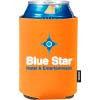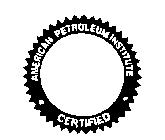Indianapolis, IN – Judge Magnus-Stinson of the Southern District of Indiana has issued a partial summary judgment in a trademark infringement case. Trademark attorneys for Norwood Promotional Products, Inc. of Indianapolis, Indiana had filed a trademark infringement lawsuit in the Southern District of Indiana alleging that  KustomKoozies, LLC and Steve Liddle of Raleigh, North Carolina infringed trademark registration no.3,240,989 for the KOOZIE mark registered with the US Trademark Office. Trademark attorneys for Norwood had sued Kustom in 2005 and 2006 over the use of the term “Koozie.” The parties reached a settlement of those lawsuits that included the terms that Kustom abandon its trademark application for the mark “KUSTOM KOOZIE”and accept a royalty-free license agreement regarding Norwood’s claimed mark, “Koozie.” In 2008, Norwood alleged that Kustom was not complying with terms of the license agreement, specifically it was required that KOOZIE be in all capital letter in any use and was not displaying ® after the mark. Further it was alleged that Kustom had registered internet domain names and sold products that were not allowed by the license agreement. The defendants attempted to cure the non-compliance, but in 2009 Norwood informed Kustom that it was cancelling the license agreement due to Kustom’s non-compliance and filed this lawsuit. Both parties moved for summary judgment.
KustomKoozies, LLC and Steve Liddle of Raleigh, North Carolina infringed trademark registration no.3,240,989 for the KOOZIE mark registered with the US Trademark Office. Trademark attorneys for Norwood had sued Kustom in 2005 and 2006 over the use of the term “Koozie.” The parties reached a settlement of those lawsuits that included the terms that Kustom abandon its trademark application for the mark “KUSTOM KOOZIE”and accept a royalty-free license agreement regarding Norwood’s claimed mark, “Koozie.” In 2008, Norwood alleged that Kustom was not complying with terms of the license agreement, specifically it was required that KOOZIE be in all capital letter in any use and was not displaying ® after the mark. Further it was alleged that Kustom had registered internet domain names and sold products that were not allowed by the license agreement. The defendants attempted to cure the non-compliance, but in 2009 Norwood informed Kustom that it was cancelling the license agreement due to Kustom’s non-compliance and filed this lawsuit. Both parties moved for summary judgment.
One of Kustom’s counterclaims was that Norwood’s registered trademark for “KOOZIE” should be cancelled. Kustom argued that the mark was invalid. However, the Court rejected this claim finding that Kustom was estopped from challenging the legitimacy of the KOOZIE mark because it had voluntarily gave up the right to challenge this mark in the prior settlement agreement. The Court also cited the doctrine of “licensee estoppel” that a trademark licensee is barred from challenging the validity of the licensor’s mark. The Court granted summary judgment in favor of Norwood, finding that Kustom had breached the settlement and license agreements. The issue of damages was reserved for trial. The Court, however, granted summary for Kustom, finding that it had not infringed the trademark after the license agreement was cancelled. Several issues in this case remain pending for upcoming trial.
Practice Tip: In its opinion, the Court is critical of both parties’ trademark attorneys litigation strategies. The Court notes “The advocacy in this matter has been zealous if not always effective or efficient.” Later, the Court notes “the briefs have defined the issues with a preference for litigation tactics and strategy, as opposed to clarity.” The court then noted that the parties’ briefs were not well organized and noted it was structuring its opinion in a more logical organization.
Continue reading
 Indiana Intellectual Property Law News
Indiana Intellectual Property Law News





